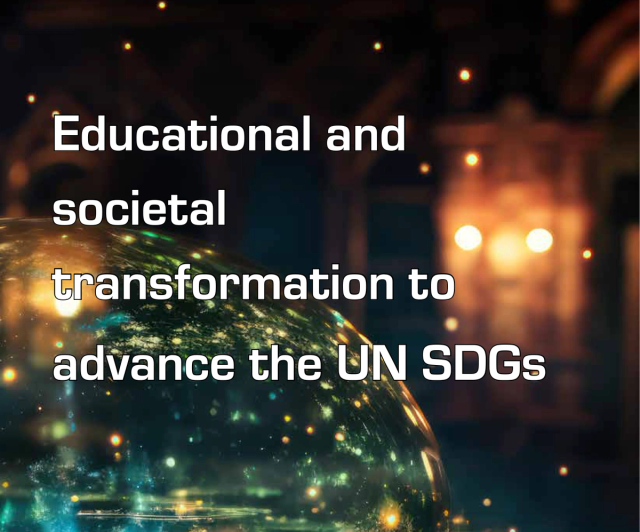Global Young Academy Magazine 2024
DIPF member and GREAT project manager, Dr. Jane Yau, is also a member of the Global Young Academy (2022-27), where its mission is giving a voice to young scientists around the world. In 2023-2024, she was the co-editor of the Connections Magazine, which is an annual magazine of the Global Young Academy, featuring peer-reviewed articles of its members.
,
This year’s magazine explores the theme “Transformation”. The magazine is additionally circulated at working events attended by the Global Young Academy office team, for example, those organised by The World Academy of Sciences and European Young Academies etc. As co-Editor-at-Large, Jane also wrote an article about “Educational and societal transformation to advance the UN SDGs”.
The following excerpt has been taken from the article:
Using education to address the climate crisis
Climate change education should be taught in every school to raise global awareness and help foster an understanding of causes, consequences and dynamics, which is essential for collectively mitigating and reducing the effects of climate change as a global collaborative effort.
Informed citizens are more likely to advocate for and support policies that address climate change. This can also increase democracy and can protect individual and human rights, especially in minority and underrepresented groups. Informed citizens are in general more open to innovation and diverse perspectives for building a sustainable and resilient society.
In the European Union and UK Research and In- novation-funded project "Games Realising Effffec- tive and Affffective Transformation" (GREAT), the aim is to use games to reach citizens in order to enhance their dialogue with policy-makers and/or governments concerning mitigation of the climate emergency.
,
The project aims to reach 300,000+ citizens via short quiz games, which will be placed inside pop- ular games as a playable advert in return for game rewards. These games will seek players’ opinions and attitudes relating to climate policy. The data will be anonymized, analysed and transferred to policy-makers with the aim of influencing them to enforce policies more suited to citizens’ needs.
These large quantitative datasets will be complemented by qualitative data collected by a collab- orative dilemma games approach, where smaller groups of citizens will be invited to participate for a longer duration of time to collectively solve an au- thentic challenge that they may face such as opting to use sustainable heating. The dilemma games are designed with different narratives, branching and options, so that players can deeply reflect and see the possible consequences of their choices.
This project is currently ending its first year of pilots, and in its second year will begin collecting large datasets from citizens in collaboration with the United Nations as a first series of substantial case studies within G20 countries; the game has been made available in 21 languages.